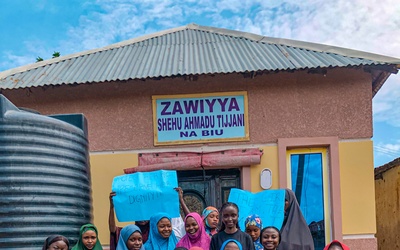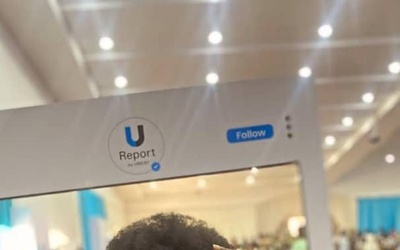ABUJA/DAKAR/NEW YORK, 29 September 2016 –UNICEF has revised its humanitarian appeal for Nigeria from US$ 55 million to US$ 115 million to assist an additional 750,000 people who can now be reached across conflict-affected areas in the northeast of the country.
As new areas open up to humanitarian assistance, the true scale of the Boko Haram related crisis and its impact on children is being revealed. An estimated 400,000 children under five will suffer from severe acute malnutrition in three states across the northeast this year. More than 4 million people are facing severe food shortages and 65,000 people are living in famine-like conditions, mostly in Borno, the worst affected state.
“Children’s lives are literally hanging by a thread,” said Afshan Khan, UNICEF’s Director of Emergency Programmes. “We are reaching new areas to provide critical humanitarian assistance but we need greater international support to further scale up and reach all children in dire need,” she added.
The destruction of whole towns and villages further complicates the response. Sixty percent of health clinics have been partially or completely destroyed and 75 percent of water and sanitation facilities require rehabilitation in Borno state.
Nearly one million children are now displaced across the northeast, a million are out of school and hundreds of thousands psychologically affected from the horrors they have lived through.
The conflict-related lack of access to children has also lead to an outbreak of polio in Borno state, where three cases of wild polio virus were confirmed in August and September. UNICEF’s funding appeal comes as a series of massive coordinated emergency polio immunisation and nutrition campaigns in northeast Nigeria and neighbouring countries is underway, targeting 1.8 million children in Borno state alone. The immunisation campaign is also identifying and treating children with severe malnutrition.
UNICEF has increased its response in the areas worst-affected by the Boko Haram conflict since April, supporting basic health care and nutrition for children and mothers, and helping provide safe water and sanitation, child protection services and learning opportunities.
Since the beginning of 2016, 2.6 million conflicted-affected people have been given access to UNICEF-supported preventative healthcare services and nearly 75,000 children have been treated for severe acute malnutrition in northeast Nigeria. The construction and rehabilitation of boreholes has provided nearly half a million people with improved access to safe water. Safe learning spaces, teacher training and educational supplies have helped over 72,000 children to restart their education and some 133,000 children have been provided with psychosocial support.
To date, just US$ 28 million of the US$ 115 million appeal has been received and this presents a serious obstacle to UNICEF’s scale up plan.
###
About UNICEF
UNICEF promotes the rights and wellbeing of every child, in everything we do. Together with our partners, we work in 190 countries and territories to translate that commitment into practical action, focusing special effort on reaching the most vulnerable and excluded children, to the benefit of all children, everywhere.
For more information about UNICEF and its work for children visit www.unicef.org.
Follow us on Twitter and Facebook.
For more information, please contact:
Doune Porter, UNICEF Abuja, Tel: +234 803 525 0273, dporter@unicef.org
Patrick Rose, UNICEF Dakar, Tel: +221 786 380 250,prose@unicef.org
Najwa Mekki, UNICEF New York, Tel: +1-212-326-7448, Mobile: +1 917 209 1804 nmekki@unicef.org








